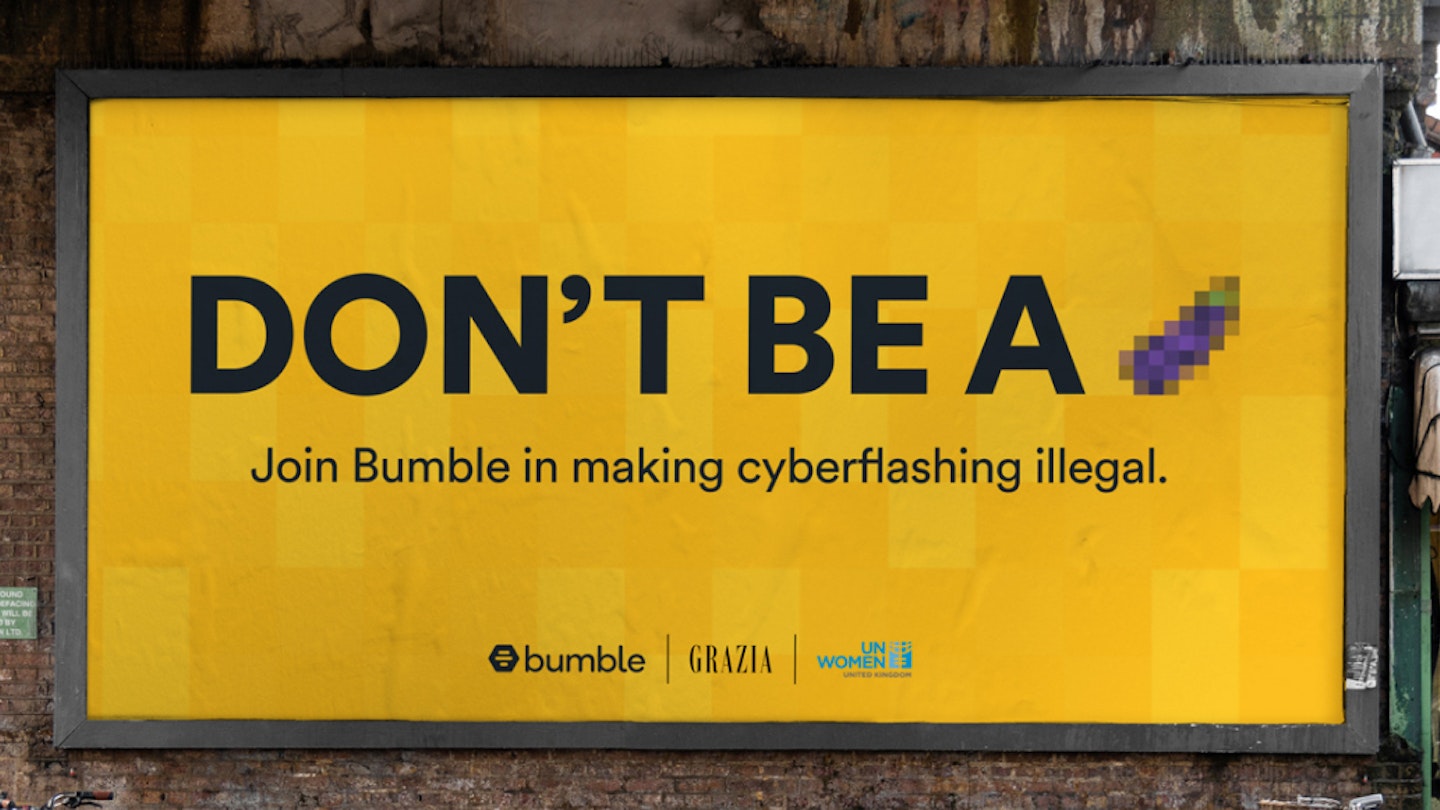‘I have been a victim of cyberflashing on multiple occasions. It is so pervasive that it even happened during my pregnancy. Receiving d* ck pics that I did not ask for left me feeling extremely vulnerable and powerless at a time when I should have been at my happiest.’
When Amy Hart was thrust into the public eye after appearing on Love Island in 2019, she went from 3,000 Instagram followers to 1.1 million. With that came newfound influence – and lucrative brand opportunities – but also, a dark side: online harassment in the form of cyberflashing, the sending of unsolicited obscene images online.
Now, she’s fronting a new campaign to strengthen laws around cyberflashing with the support of Grazia, Bumble and UN Women UK. While cyberflashing is about to be made a criminal offence punishable by up to two years in prison, the legislation proposed as part of the Online Safety Bill will criminalise the practice based specifically on ‘harmful intent’. This intent-based approach is not only hard to prove, but it also leaves room for men to
claim they sent unsolicited obscene images as a ‘joke’ – meanwhile, women pay the price of harassment. That’s why Grazia, Bumble and UN Women UK are pushing for a consentbased approach instead. If someone sends an obscene or sexual image without getting a person’s consent, they’re guilty of cyberflashing, plain and simple. The campaign is needed now more than ever. New research from Bumble has found that 48% of 18 to 24-year-olds have received an unsolicited sexual image, leading to more than a quarter of women feeling unsafe and nearly 90% agreeing that more need to be done to stop the criminal practice.
‘We must believe survivors, and that means a definition of sexual harassment that is about unwelcome behaviour, rather than the intention of the perpetrator,’ Claire Barnett, executive director of UN Women UK, says. ‘Sometimes the argument is made that the concept of consent is confusing or difficult, but when it comes to consent there are no blurred lines. Consent must be enthusiastic, given freely, informed, specificand reversible. It is critical that we create a culture of consent from an early age if we are to eliminate sexual harassment in the same way that we have seen a huge behavioural change around wearing seatbelts or using single-use plastic bags. We need safe spaces – online and offline – now.’
Bumble, UN Women UK and Grazia are encouraging people across the UK to show their support for a consent-based approach to cyberflashing legislation by signing a pledge that recognises the need for stronger legislation – you can visit this webpage to do so.
‘After years of campaigning, the bravery of women who helped make cyberflashing a crime finally paid off: perpetrators will now face two years in prison,’ says Grazia editor-in-chief Hattie Brett. ‘But it’s essential that the legislation is not watered down at the last hurdle – an approach that embeds consent is the only way to ensure women are no longer subject to this disturbing behaviour.
